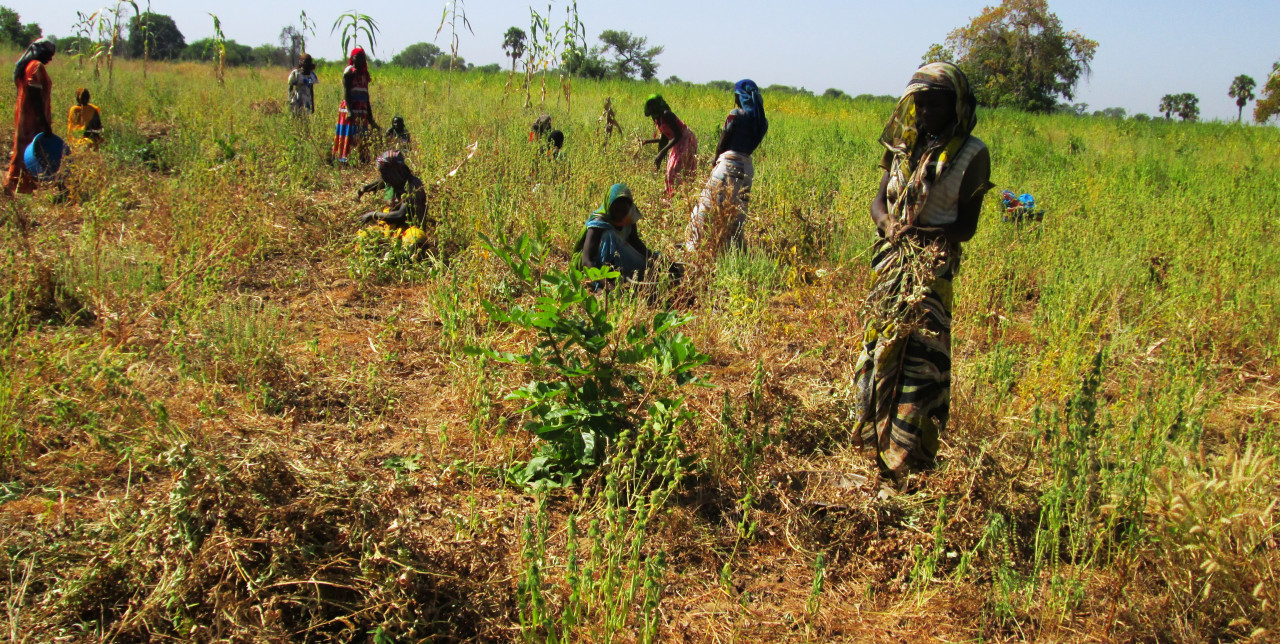28-07-2017 | di COOPI
Chad: seeds and equipment are the keys to recovery
With 17.5 kg of seed and 70 farm tools, a group of women in Chad has been farming two hectares of land in order to revive local agriculture and gradually make their community self-sufficient from a nutritional point of view. Nevertheless, the distribution of seed and farm tools is only one of the projects that COOPI is running in Chad, thanks to its "Integrated emergency program to improve the food security of vulnerable people in the region of Lake Chad". With this project, funded by AICS (the Italian Agency for Development Cooperation) and launched in June 2017, COOPI aims to provide aid, particularly to foreign and local refugees.
Immediate aid for long-term development
This project particularly focuses on a group of 25 women, known as the Bonou group, who live in the village of Madikimerom, near Bol, the capital of the department of Mamdi. Our operators not only provide them with immediate aid by giving them tools (hoes, rakes and shovels) and seed (corn, black-eyed beans and millet), they also instil them with a more long-lasting form of development. As regards this aspect, the training the women receive in farming techniques, and the support they get when organising their work in practical terms, are key to increasing and diversifying production in the medium-to-long-term.
Women relaunching production
In this geographical area, where drought is commonplace and there is little infrastructure providing constant access to water, COOPI’s work is already bearing fruit, matching, expanding and capitalising on the results achieved by previous development projects. One of those who benefit from the project, Halime Abakar Abdou, can testify to its success. Halime is a 35-year-old woman who is both a member and a councillor of the Bonou group. She lives with her seven children in the village of Madikimerom. «In 2016, despite only farming one hectare of land, not only did we manage to harvest enough grain and pulses for our community, we also had enough left over to sell and to sow this year», says Halime, who goes on to say: «with what we earned from selling surplus produce, we managed to build a fence around our plots of land».
The hope is that this year, having been given an extra hectare of land by the village chief compared to 2016, production and sales will increase, benefitting Bonou’s women and their families.




 Chad
Chad